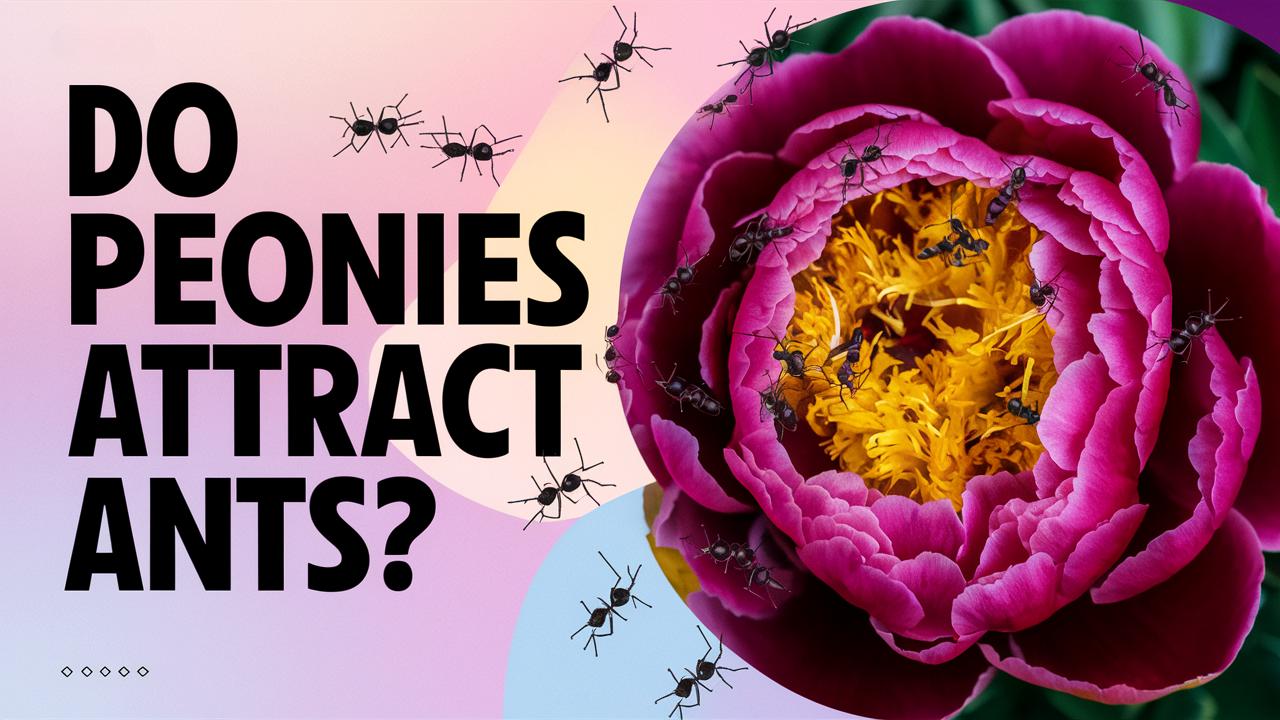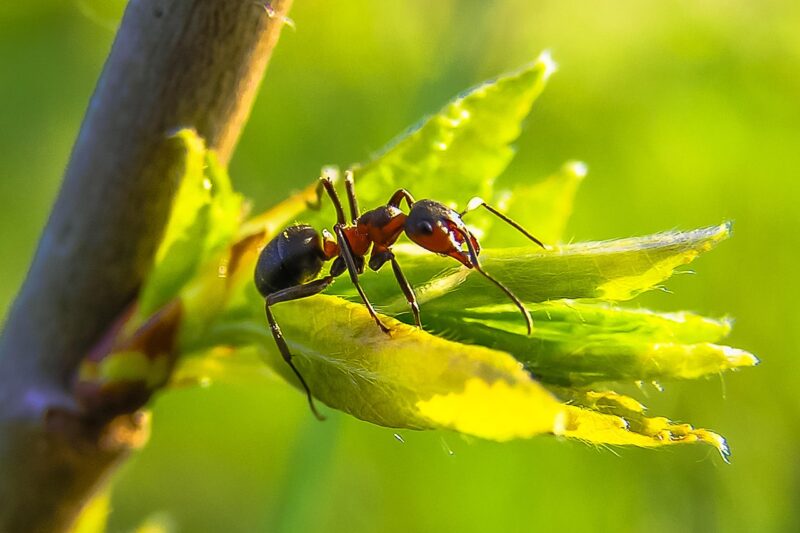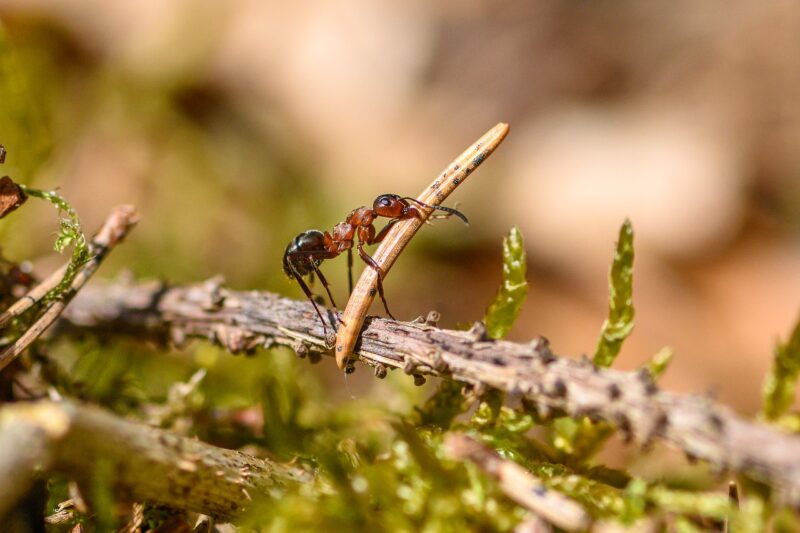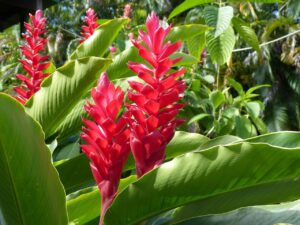In this post, we’ll cover the fascinating relationship between peonies and ants, unraveling the mystery, examining the reasons behind it, and exploring how to manage these little visitors.
Peonies and Their Sweet Secret: Nectar
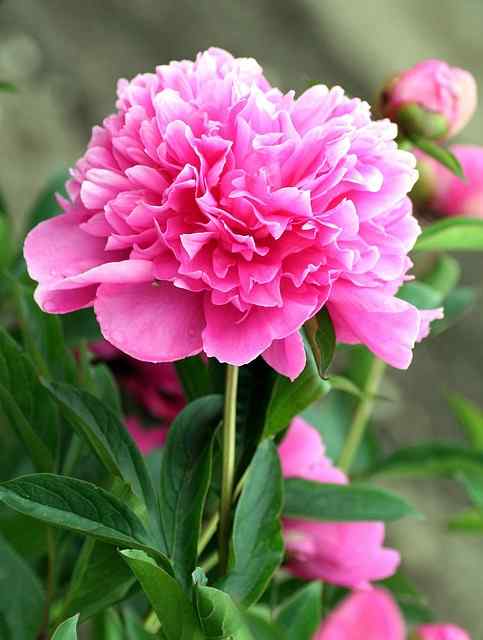
Now that we’ve explored what peonies are, let’s investigate the reason behind the association of ants with these blooms. The primary reason ants are drawn to peonies is the aphids. These small, sap-sucking insects are often found on the buds and flowers of peonies, feeding off the plant’s nutrients and excreting a sugary substance known as honeydew.
Honeydew is a highly attractive substance for ants. It serves as a primary food source for them, rich in carbohydrates. When ants detect the presence of aphids on peonies, they frequently visit the flowers, seeking to harvest this sweet nectar. As they feast, they inadvertently protect the aphids, guarding them against predators that would otherwise keep their population in check. This relationship, known as mutualism, benefits both species: the ants gain sustenance, while the aphids enjoy a level of safety.
The Nature of the Ant-Peony Relationship

Ants and peonies have an intriguing relationship, characterized more as a symbiotic interaction rather than parasitism. While ants benefit from the honeydew produced by aphids on peonies, they often become a frequent presence around these blossoms. However, it’s essential to clarify that simply having ants around your peonies does not necessarily mean there is an infestation of aphids.
Interestingly, ants are not harmful to peonies. They don’t feed on the flowers or the plant itself. Instead, their presence is more about their affinity for honeydew than a direct relationship with the peonies. As such, peonies can thrive even in the company of these little foragers.
Identifying If Your Peonies Have Aphids
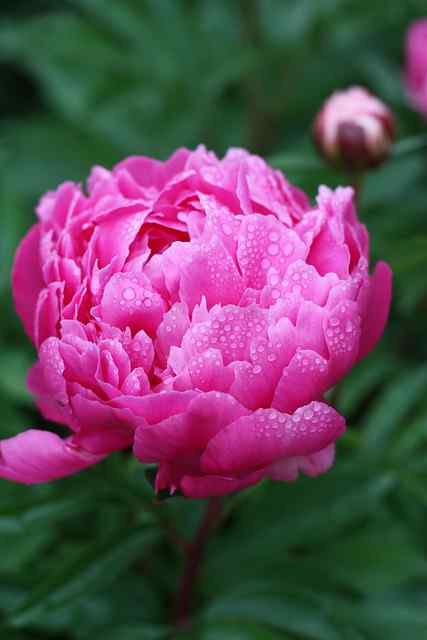
To determine if your peonies are attracting ants due to aphids, look for specific signs. Aphids are typically small, soft-bodied insects that can vary in color—green, black, or even pink. They congregate in large numbers, often on new growth or flower buds, which can lead to distorted leaves, stunted growth, or a sticky residue on plants—thanks to their honeydew production.
If you spot a lot of ants, particularly small black ones, crawling up and down your peonies, it might signal the existence of aphids nearby. However, it’s important to conduct a thorough inspection to determine their presence. A quick examination of the undersides of leaves and the stems will often reveal these small critters.
How to Manage Ants and Aphids on Peonies
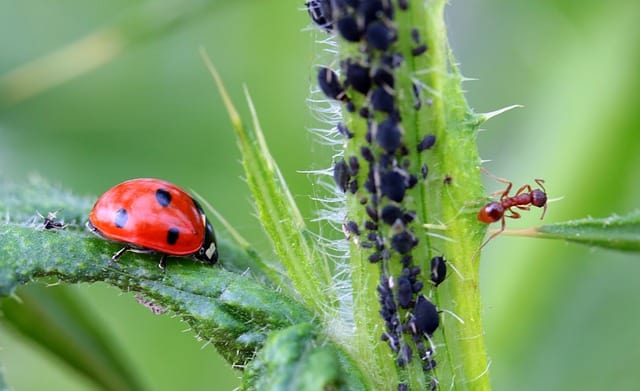
While the relationship between ants and aphids might seem benign at first glance, many gardeners prefer to manage these populations for healthier plants. Here are several strategies to consider:
Natural Predators: Encouraging beneficial insects, like ladybugs and lacewings, can help keep aphid populations in check. These natural predators will actively hunt down aphids, reducing the food source for ants and, effectively, their presence.
Insecticidal Soap: If aphids are a significant issue, utilizing insecticidal soap is a gentle and effective remedy. Spray the affected areas, making sure to target both the insects directly on the plants and those that have a tendency to hide. This treatment can be repeated until the aphid population is controlled.
Neem Oil: Neem oil acts as a deterrent and disrupts the life cycle of aphids, thus naturally minimizing their numbers. Mix neem oil with water and a mild soap, then apply it to affected foliage.
Water Jet: A gentle spray of water can dislodge aphids from the plant. Use a hose with a sprayer attachment to blast them off, making it harder for ants to find sustenance.
Ant Deterrents: If ants are overly persistent, consider implementing barriers, such as diatomaceous earth, around the base of your peonies. This natural substance acts as an abrasive that can deter them from climbing up the stems.
Should You Worry About Ants at All?
The underlying question remains: Is it necessary to eliminate ants from your peonies entirely? In most cases, ants alone do not pose a significant threat to your peony plants. They are more of an indicator of an underlying issue—namely aphid populations—rather than a direct threat to the health of the peonies.
In fact, many gardeners find that a handful of ants crawling among their peonies does not diminish their beauty or vitality. If the aphid population is controlled, the ants will naturally decrease as they have less honeydew to feed on. This natural balancing act is part of the ecosystem in which your garden thrives.
Peonies Without Pests: Is It Possible?
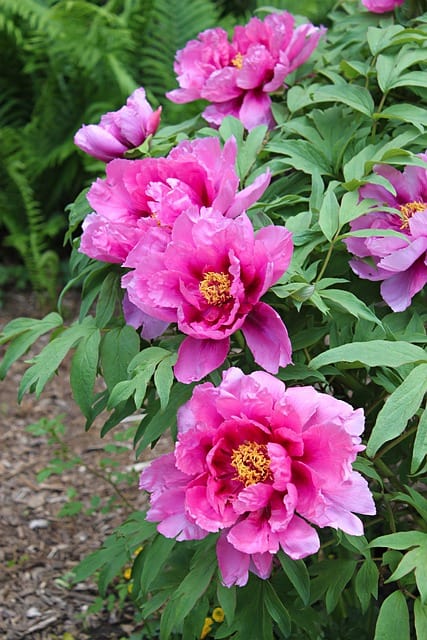
Some gardeners aim for a perfectly pest-free landscape, seeking to keep both ants and aphids at bay. Achieving this is a more significant challenge, but it can be accomplished through proactive garden management. Below are some strategies for keeping your peonies as pest-free as possible.
Healthy Soil: Fertile soil leads to stronger plants. By regularly amending your soil with organic material and nutrients, you enhance your plants’ resilience to pests. Healthy peonies are likely to withstand occasional stress from aphids without severe impact.
Proper Watering: Overly dry or overly wet conditions can stress your plants, making them more susceptible to pest issues. Maintain a consistent watering schedule to ensure your peonies are thriving.
Pruning: Regularly assessing and pruning your peony plants can help improve air circulation and reduce the chances of aphid infestations. Cut back any infected leaves or stems to combat pest populations.
Plant Diversity: Incorporating a range of plants around your peonies can draw beneficial insects that prey on aphids. Companion planting is beneficial not only for pest control but for creating a vibrant and healthful garden ecosystem.
Celebrating Ants in the Garden
Rather than viewing ants as mere pests in your garden, consider their role in the ecosystem. As they traverse through your soil, they aerate and assist in breaking down organic material, contributing to a healthier growing environment for your peonies and other plants.
Additionally, ants serve as food for various predators, and your garden can be a rich habitat for different species. Understanding and appreciating the role of ants can enhance your gardening experience rather than detract from it.
The Symbolism of Peonies and the Role of Nature
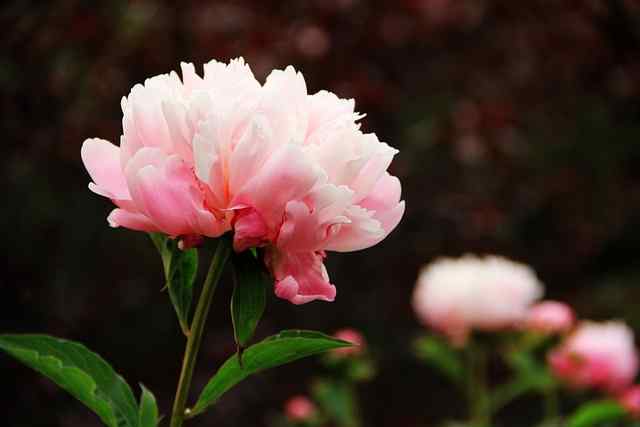
As beautiful as peonies are, they also reflect the intricate balance of nature. These flowers symbolize various meanings that resonate deeply with people, from romance and prosperity to healing and renewal. The dynamic between peonies, ants, and aphids mirrors the complex relationships that exist within ecosystems.
As you nurture your garden, whether it’s a sanctuary for peonies or a thriving ecosystem, consider how these interactions contribute to a larger narrative. Nature is undoubtedly a complex web of relationships, where each species—regardless of size—plays a part in the greater story.
Conclusion
In conclusion, while peonies can attract ants due to the presence of aphids and their sugary secretions, these little insects do not harm your beloved flowers. Instead, they symbolize an intriguing layer within the ecosystem of your garden.
By utilizing appropriate strategies to manage aphid populations and ensuring your peonies receive optimal care, you can enjoy the stunning beauty of these blooms without the worry of unwanted guests.


